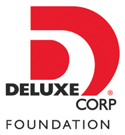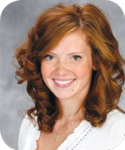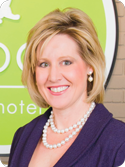
Entrepreneurship Outside the Classroom
Monday, April 1, 2013
By Kevin Moe
Entrepreneurship spreads well beyond the classroom. Students intern with startups, develop their businesses and nonprofits, participate in competitions, organize clubs and speakers, meet with entrepreneur mentors, and get connected with the entrepreneurial business community. The Holmes Center organizes a broad range of entrepreneurial programs for students to learn from the experts—and from each other—on how to pursue their entrepreneurial passions.
Deluxe Entrepreneur Intern Program
Each spring semester, 30 undergraduate students are placed in internships with early-stage companies through the Deluxe Entrepreneur Intern Program. Subsidized through endowments from the Deluxe Corporation Foundation, the Buuck Family Foundation, benefactor Dale Vesledahl, and Pat Hopf, ’71 BSB, the program enable students to apply their education while experiencing the challenges of working in an entrepreneurial environment. Not only a boon to participating students, but the program also provides exceptional value to participating companies.
“After completing my internship at 8thBridge [a social commerce company], I was offered a full-time position,” says Melissa Buening, an architectural graduate who was in the Carlson School management minor program. “I went from being an intern to a sales assistant to a marketing manager to be in charge of all the marketing for the company in less than two years. The program did a great job matching me with a fast-growing start-up and positioning me to eventually launch my own business.”
3M Seminars on Technology Commercialization
The Holmes Center developed the 3M Seminars on Technology Commercialization in 2006 to teach graduate and PhD students from across campus about the critical issues facing technology-based entrepreneurship. Through the financial support of 3M, this series of seminars lets students hear directly from leading technology entrepreneurs, venture capitalists, attorneys, and academics about how to begin developing technology and science-based breakthroughs into profitable businesses. Half-day workshops combine industry expertise with Carlson School faculty versed in the latest methods for bringing new ideas to the market.
Entrepreneurship Club
One of the largest and most dynamic student organizations is the Entrepreneurship Club, or E-Club. Drawing students from across campus, the club organizes a twice-weekly luncheon speaker series and promotes various activities throughout the year, including panel sessions and visits to area businesses.
“E-Club is a great place to learn about business in an informal setting,” says Club President Luke Burns, who is in the BSB Class of 2014. “I’ve been involved in the club for three years, and it’s one of the coolest experiences I’ve had–meeting and learning directly from Minnesota’s best entrepreneurs.”
True to their free-market principles, E-Club students created their own highly profitable carnival event in front of Coffman Union to fund their twice-weekly lunches and annual CEO Dinner at TCF Stadium. This annual U-Fest event was founded by Nick Beste, ’09 BSB, and Kevin Carlow, ’08 BSB, and handed down to make E-Club the most profitable club on campus. E-Club leaders also formed their own 501(3)c nonprofit, the Youth Music Education Foundation (YMEF). Profiled in the fall 2012 issue of Carlson School, YMEF is an entirely student-led organization designed to provide music education and instruction to children in need.
“E-Club was the best thing I was ever involved with at the University of Minnesota,” says Melissa Buening. “Every week, I listened to and met two founders of fascinating businesses with great lessons and advice. The club brought in some pretty big names like Mark Cuban (Dallas Mavericks/Shark Tank), Steve Schussler (Schussler Creative/Rainforest Café), Robert Stephens (Geek Squad), Dave Anderson (Famous Dave’s), and Craig Culver (Culver’s).”
Undergraduate Mentor Program
Entrepreneurial-minded students can make contact with members of the Twin Cities business community and polish their professional networking skills through the Undergraduate Mentor Program. Mentors provide advice and guidance to help clarify students’ career goals. One such mentor is Buening, a budding serial entrepreneur who used the knowledge she gained at the Carlson School to launch Dazzley Box, a monthly subscription box for women containing jewelry, beauty, food, or innovative products. “I am currently mentoring an undergraduate student and I feel like we are actually learning a lot from each other,” Buening says. “At first, she thought she might be interested in starting a business after she graduated, but was unsure how to do it and thought it required tons of capital. I helped her understand the basics of starting a business and explained ways to do it without a lot of money. I am going to help her set up a plan for how she will start her own business by the end of the program.”
BizPitch and Startup Weekend Competitions
A popular event for entrepreneurially minded students is the semi-annual BizPitch Competition, which offers a $1,000 grand prize for the most compelling new business idea. BizPitch is a University-wide event in which undergraduate students have 90 seconds to present their “elevator pitch” to a select panel of judges and fellow students. It is a great opportunity for students to get feedback on their concept and perfect their presentation skills. Participants are provided access to pro bono legal services, mentoring, and seed capital funds to support the further development of their idea.
Natalie Herrild, an economics major with a Carlson School management minor, won the competition in spring 2012 with an idea centering around a portable ironing device. “The concept is to give busy professionals a fast and convenient, high-quality ironing option that keeps them looking sleek and pressed at any point in the day,” she says. “The day of the competition I was insanely nervous, but the minute I got in front of the judges I took a deep breath and had so much fun pitching all of our hard work. To win was an honor and I feel very fortunate to be a part of the Carlson School’s entrepreneurship program.”
The Holmes Center also has hosted three Twin Cities Startup Weekend events in the past 18 months in which 100+ entrepreneurs, software developers, designers, and students gather on campus for a 48-hour competition to form teams, build products, and launch software startups.
Abdo Dinner Conversation Series
Perhaps the most unique Holmes Center program is the Abdo Dinner Conversation Series hosted by serial entrepreneurs Caryl and Larry Abdo (both ’69 BSB). Several times each year, the Abdos welcome 16 students to their historic Nicollet Island Inn in Minneapolis for an informal and candid discussion on the personal challenges of an entrepreneurial career. Here, the Abdos and other invited alumni entrepreneurs share their perspectives and offer career guidance to Carlson School entrepreneurship students and their spouses.
“We invoke comments on what to do if and when things go good and bad,” says Larry Abdo. “We have had a successful marriage and business career, and they are linked. We believe that if you’re passionate about managing your business and making it successful, you need to use the same passion in your relationship.”
Gopher Angels
Gopher Angels is a group of experienced entrepreneurs, business leaders, and investors who are passionate about creating successful ventures in Minnesota. Founded by David and Sarah Russick, it has a strong relationship to the Carlson School and the Holmes Center, counting many alumni and faculty as members. Entrepreneurship student interns help organize meetings and conduct due diligence on potential investments.
Gopher Angels seek out entrepreneurs who can turn their vision into a successful business. It provides them with guidance, connections, and business support to bring their businesses to the next level. Among its staff members are several Carlson MBAs working as interns and gaining experiential business knowledge. This year, Gopher Angels plan to be a sponsor for the Minnesota Cup.
“We value our ties to the Carlson School and the Holmes Center,” says David Russick. “It has been mutually beneficial.”
Gopher Angels are always seeking accredited investor members who are graduates of the Carlson School or the University of Minnesota–both experienced investors and those new to angel investing are welcome. More information can be found on its website, gopherangels.com.
Minnesota Cup
Perhaps the most anticipated event for every entrepreneur in the state is the annual Minnesota Cup. The competition seeks to support and accelerate the development of the best breakthrough ideas from across Minnesota. Since its founding in 2005 by Scott Litman, ’91 CLA, and Dan Mallin, ’95 MBA, more than 7,000 entrepreneurs have participated, and nearly $1 million in cash prizes have been awarded. Organized by the Holmes Center, the Minnesota Cup has grown into the country’s largest statewide new business competition. More than 40 Carlson School alumni annually mentor the participants, and the University hosts year-round events to provide free resources for participants. Since 2009, finalists have raised more than $60 million of capital.
The Minnesota Cup is a community-led event with more than 30 sponsors, including the state of Minnesota, industry trade associations, regional development initiatives and foundations, professional services firms, and many corporate sponsors, including Wells Fargo, Carlson, Digital River, General Mills, UnitedHealth Group, Proto Labs, and Xcel Energy. The 2013 competition is offering cash prizes of $200,000, with applications due by May 17. Registration and eligibility information can be found at mncup.org.
2012 Minnesota Cup Winner – Julie Gilbert Newrai
By Quinn Borgstrom
Julie Gilbert Newrai, ’93 BSB, ’99 MBA, believes in the potential of PreciouStatus simply because every person in today's world has or will have someone they love in a professional care facility. Her mobile-friendly application provides families peace of mind by affording real-time updates and glimpses into the lives of their loved ones—whether they are in childcare, schools, hospitals, nursing homes, and most recently with the addition of PreciousPetStatus, pet-care facilities—directly from the care providers.
Throughout her and her team’s successful career, Gilbert Newrai’s focus has always revolved around the human spirit by utilizing the best available tools/technology to build a successful business model that incorporates engagement and individual respect. PreciouStatus, the winner of the 2012 Minnesota Cup, comprehensively embodies all these values, in an easy-to-use, simple-yet-powerful package to help families stay current on their loved ones’ day-to-day activities.
The platform simplifies providers’ daily operational activities by providing an intuitive interface to effortlessly send instant status updates via text or email, including photos to the family members of those in their care. Each pre-approved family member receiving the updates can self-select the types of updates he or she wants.
Gilbert Newrai says she hears from people all the time about the peace of mind PreciouStatus brings, whether it is used in an eldercare facility, hospital, or childcare center. “We spend so much less time and unnecessary effort sending reminders to parents multiple times about items needed or holidays,” says teacher Lanie Thompson. Gilbert Newrai says she also has heard from Joe O’Neill, a former cabinet member in President Bush’s administration, who uses PreciouStatus to get updates on his father in California.
PreciouStatus emerged from personal hardship. In early 2011, Gilbert Newrai’s husband was diagnosed with a brain hemorrhage that required surgery and extensive rehabilitation. A new mom at the time, she often struggled to obtain updates on her child at childcare and her husband in rehabilitation. The daily frustration ultimately peaked one day while she was driving. “I tried calling each [care] facility, only to be put on extended hold, and then to be disconnected. And that happened not once, twice, but four times,” she says. “I just pulled the car over and said, “There just has to be a better way.'” She immediately drove to a coffee shop and mapped out her vision for what would become PreciouStatus—a business where “everyone wins.” A former executive at Best Buy and founder of the globally profiled Wolf Means Business, Gilbert Newrai sought feedback from her worldwide Wolf network. To learn more about end-user needs, she held innovation meetings with more than 2,000 care provider employees, teachers, and primary family members to discuss how her idea could improve their work and the lives of those they touch every day. Through their pain points and suggestions, PreciouStatus came to life so that “everyone wins,” Gilbert Newrai says.
That winning formula, says Rick Serkin, principal of PreciouStatus, certainly makes an impression on the care providers. “They pick that up. That we’re doing it for the right reasons. And so many times in business, if you do things for the right reasons, then the numbers part—the profit, the gross margins, the bottom line—they follow those things. In my opinion, a lot of businesses that fail put the numbers first, and hope that the right reasons follow.”
The Minnesota Cup
Gilbert Newrai says that the Minnesota Cup competition has been the best thing she’s ever been a part of in her career. She says she immediately felt a part of a community of entrepreneurs going through the same challenges that she faced. Additionally, the supportive, yet critical judges only made the PreciouStatus business better.
“A hundred people a day will tell you in many different ways: Why are you focusing on this? This isn’t going to work. If this was such a great idea, someone would have done it already,” she says. “Competing in the Minnesota Cup just gives you unlimited energy to just wake up and say, ‘I’m going to make this happen!'”
And she made it happen.
“From being at one of the lowest points of my life, and having that winning day not too far away from that, I just felt validated,” she says. “Winning was like a rope being thrown to you in the middle of the ocean, and the rope is being pulled by some really smart people saying, ‘We not only believe in you, we’re going to be here to help you.'”





